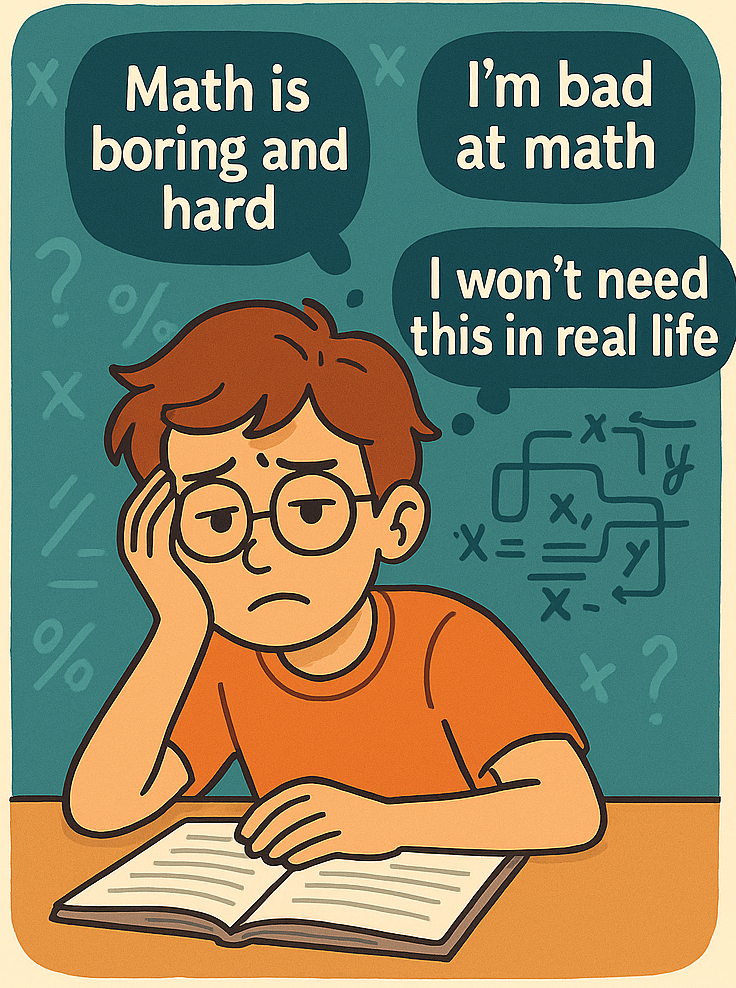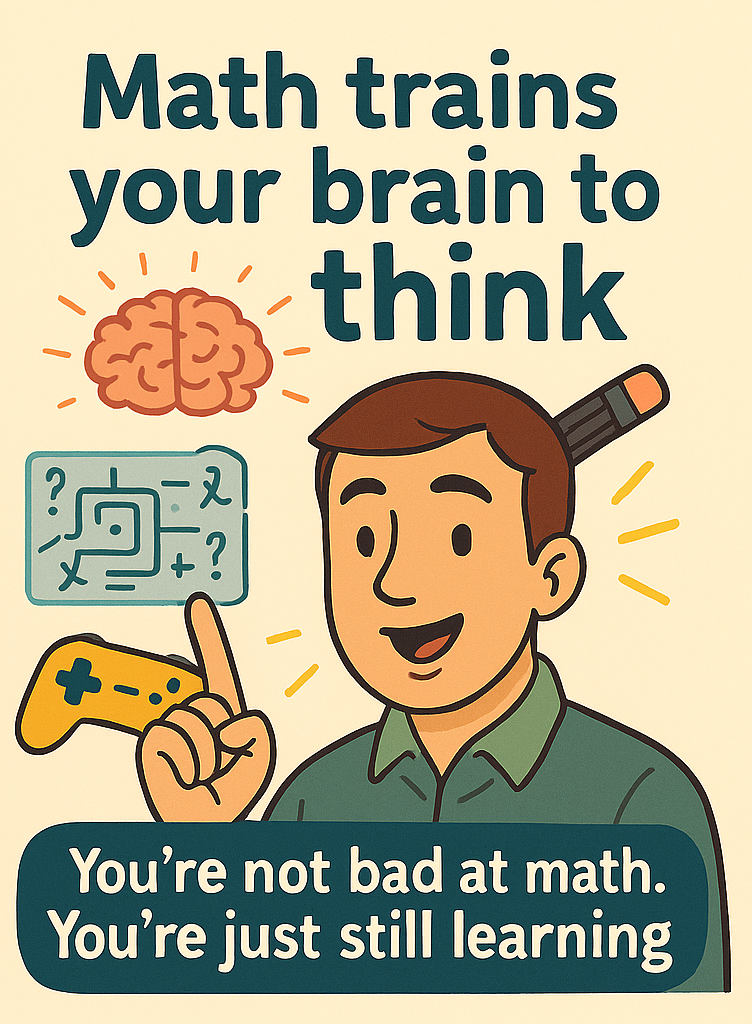
- Math is boring and hard.
- "I'm never gonna use this in real life."
- "I'm bad at math."
- "Math is just not my thing."
You're not wrong.
There are parts of math that feel pointless, especially when you're tired, stressed, or wondering how this has anything to do with your actual life. You're not sitting at home dreaming of factoring trinomials or graphing square roots. You're thinking about your next break, your goals, your future, or maybe just what's for lunch.
So let's be real. You probably won't need to solve a rational equation while grocery shopping. You won't be handed a logarithmic function during a job interview or asked to graph a parabola when you become a nurse, a mechanic, an artist, or even a YouTuber. And yes, even if you become a full-time parent—raising a whole human—there might be days when all you really use is basic arithmetic and a lot of patience.
But if you're still reading, here's the part I want to explain honestly:
You're not learning math just because you'll need the content. You're learning it because math teaches your brain to do something that's way more important than solving for x.
Math trains your brain to think.

Every time you work through a tough problem—
when you pause, go back, try again, rethink the steps—
you're building a skill that every adult needs:
problem-solving.
Life will hand you confusing, frustrating, "there-is-no-clear-answer" situations. Math won't fix those for you, but the way you learn math? That's practice. Quietly, in the background, it's teaching you how to think clearly when things feel messy. How to break something big into smaller parts. How to stick with a challenge longer than you want to.
And that's real life.
- That's debugging a piece of code.
- That's budgeting when your salary's tight.
- That's figuring out how to plan a vacation with five people and one car.
- That's building something from scratch—whether it's a business, a side hustle, or your own routine.
Think of math like a brain gym.
You might not love lifting weights, but if you want to be strong, you do it anyway.
You might not love solving quadratic equations, but every time you try—even when you get it wrong—your brain is getting stronger, more flexible, and more prepared to face the next challenge.
And yes, sometimes it can actually be fun.
Not always. I won't pretend every topic is exciting.
But some of you love strategy games, puzzles, coding, or leveling up in games that require real thinking. Guess what? Solving a difficult math problem and getting it right can feel like beating a hard level in a game. That "aha" moment? That's your brain getting a reward for the work it just did.
You don't have to love math to enjoy that moment. You just have to keep showing up for it.
Final thought (not a lecture, promise)
"I've taught students who started the year convinced they were terrible at math — and ended up surprising themselves. Not because the math got easier, but because they got stronger."
You don't have to love math. You don't have to pretend it's your favorite thing ever. But maybe, just maybe, try looking at it like a mental workout — a way to make your brain stronger, sharper, and ready for whatever wild dream you're chasing.
And to do well in it, you need to solve the math problems. That's just the system we're in. You don't have to love it. But the good news is, the more you practice, the better you'll get—and the less frustrating it becomes.
You don't have to be "a math person." That's not a real thing. You just need to try.
I don't expect perfection. I expect effort.
And if you ever feel like giving up, remember this:
We all are.
~ Salah Alkmali